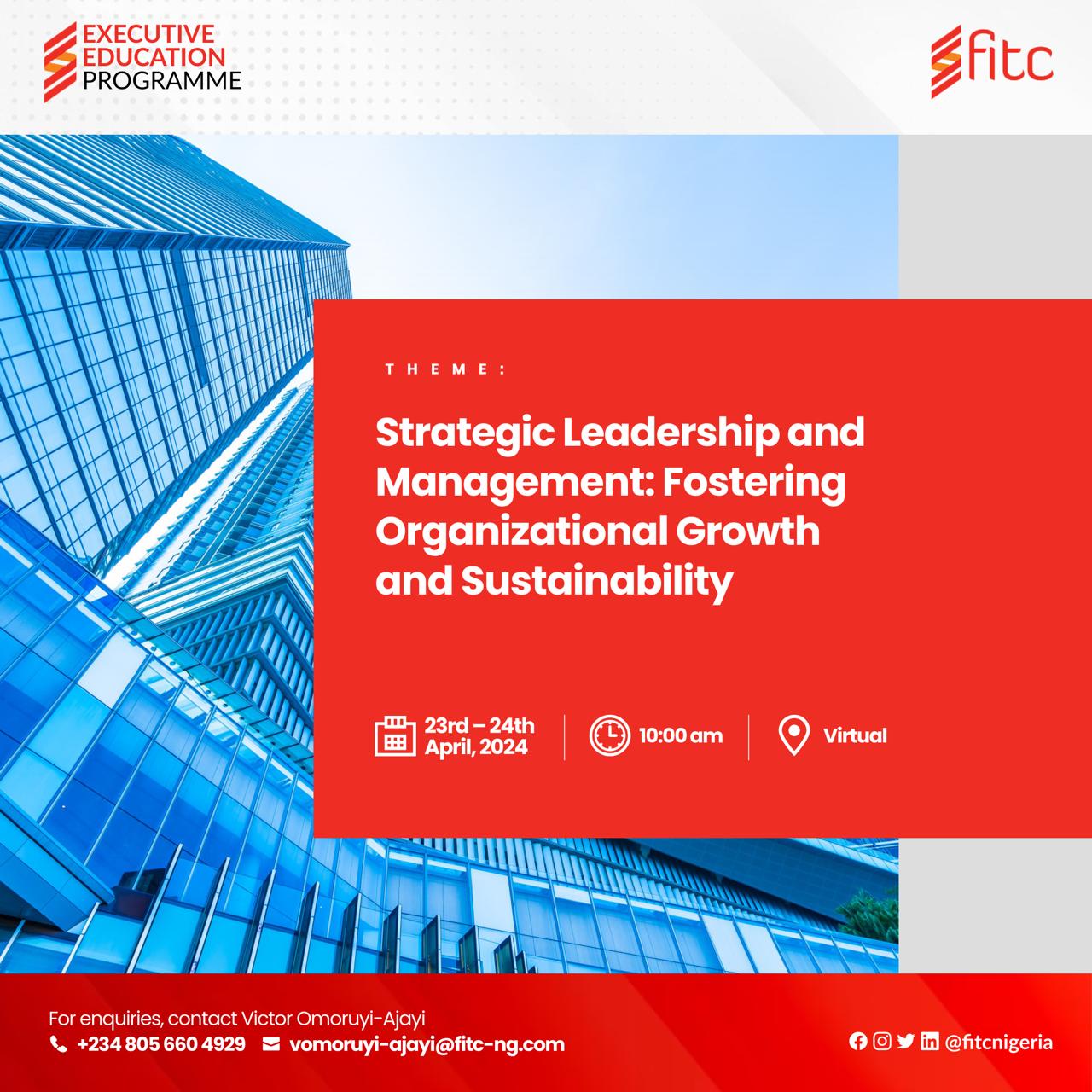Strategic Leadership and Management: Fostering Organizational Growth and Sustainability

Background:
In today’s rapidly evolving business landscape, organizations are grappling with unprecedented challenges and opportunities brought about by recent contemporary trends. From technological advancements to shifting consumer behaviors and global disruptions, the modern business environment demands a new approach to leadership and management. With the rise of digital transformation, businesses are increasingly reliant on data-driven insights and agile methodologies to remain competitive. This necessitates leaders who can navigate complexity, embrace innovation, and foster a culture of continuous learning within their organizations.
Moreover, the emergence of remote work and virtual collaboration has redefined traditional notions of organizational structures and employee engagement. As remote and hybrid work models become the norm, leaders must adapt their leadership styles to effectively manage diverse, geographically dispersed teams while maintaining productivity and morale. Additionally, the growing emphasis on sustainability and corporate social responsibility has compelled organizations to integrate ethical practices into their business strategies. Leaders who prioritize sustainability not only mitigate risks associated with environmental and social issues but also capitalize on emerging market opportunities and enhance brand reputation.
In this dynamic and complex landscape, strategic leadership and management have never been more crucial. Organizations require leaders who can anticipate change, inspire innovation, and drive sustainable growth while fostering an inclusive and resilient organizational culture. By equipping leaders with the necessary skills, knowledge, and mindset to thrive in today’s environment, organizations can position themselves for long-term success amidst ongoing disruption and uncertainty.
Target Audience:
This program is designed for executives, mid to senior-level managers and aspiring leaders across industries who seek to enhance their strategic leadership and management skills. It caters to individuals who are responsible for driving organizational growth, navigating complexities, and ensuring sustainability in today’s dynamic business environment.
Leaning Outcomes:
- Develop a comprehensive understanding of strategic leadership principles and practices and their role in fostering organizational growth, innovation, and sustainability.
- Acquire the skills and competencies necessary to formulate and execute strategic plans, lead change initiatives, and drive performance improvement within their organizations.
Leaning Objectives:
- Analyze macroeconomic trends, industry dynamics, and competitive landscapes to identify opportunities and threats for organizational growth and sustainability.
- Develop strategic vision and direction-setting skills to articulate a compelling vision and align organizational goals with strategic priorities.
- Implement effective strategic planning processes, including environmental scanning, SWOT analysis, and scenario planning, to formulate actionable strategic plans.
- Lead change initiatives and organizational transformations, fostering a culture of innovation, adaptability, and continuous improvement.
- Evaluate performance metrics and key performance indicators (KPIs) to monitor progress, measure outcomes, and drive accountability and performance improvement.
Content:
1. Foundations of Strategic Leadership
- Definitions and principles of strategic leadership.
- Role of strategic leaders in organizational success.
- Characteristics and competencies of effective strategic leaders.
2. Environmental Analysis and Strategic Planning
- Macroenvironmental analysis: PESTEL framework.
- Industry analysis: Porter’s Five Forces model.
- Internal analysis: SWOT analysis and resource-based view.
3. Strategic Vision and Direction Setting
- Developing a compelling vision and mission statement.
- Setting strategic goals and objectives.
- Aligning organizational culture and values with strategic direction.
4. Strategic Planning and Execution
- Strategic planning process: formulation, implementation, and evaluation.
- Strategic options and alternatives: growth strategies, diversification, and alliances.
- Strategic alignment and resource allocation.
5. Leading Change and Innovation
- Change management frameworks and models.
- Creating a culture of innovation and learning.
- Overcoming resistance to change and driving organizational change successfully.
6. Performance Management and Measurement
- Key performance indicators (KPIs) and performance metrics.
- Balanced scorecard approach to performance measurement.
- Continuous improvement and performance optimization.
7. Building High-Performing Teams
- Team dynamics and leadership styles.
- Empowering and motivating teams to achieve strategic goals.
- Conflict resolution and fostering collaboration.
8. Ethical Leadership and Corporate Social Responsibility
- Ethical decision-making frameworks and principles.
- Corporate social responsibility (CSR) and sustainability initiatives.
- Balancing financial objectives with social and environmental responsibilities.
Loading…




